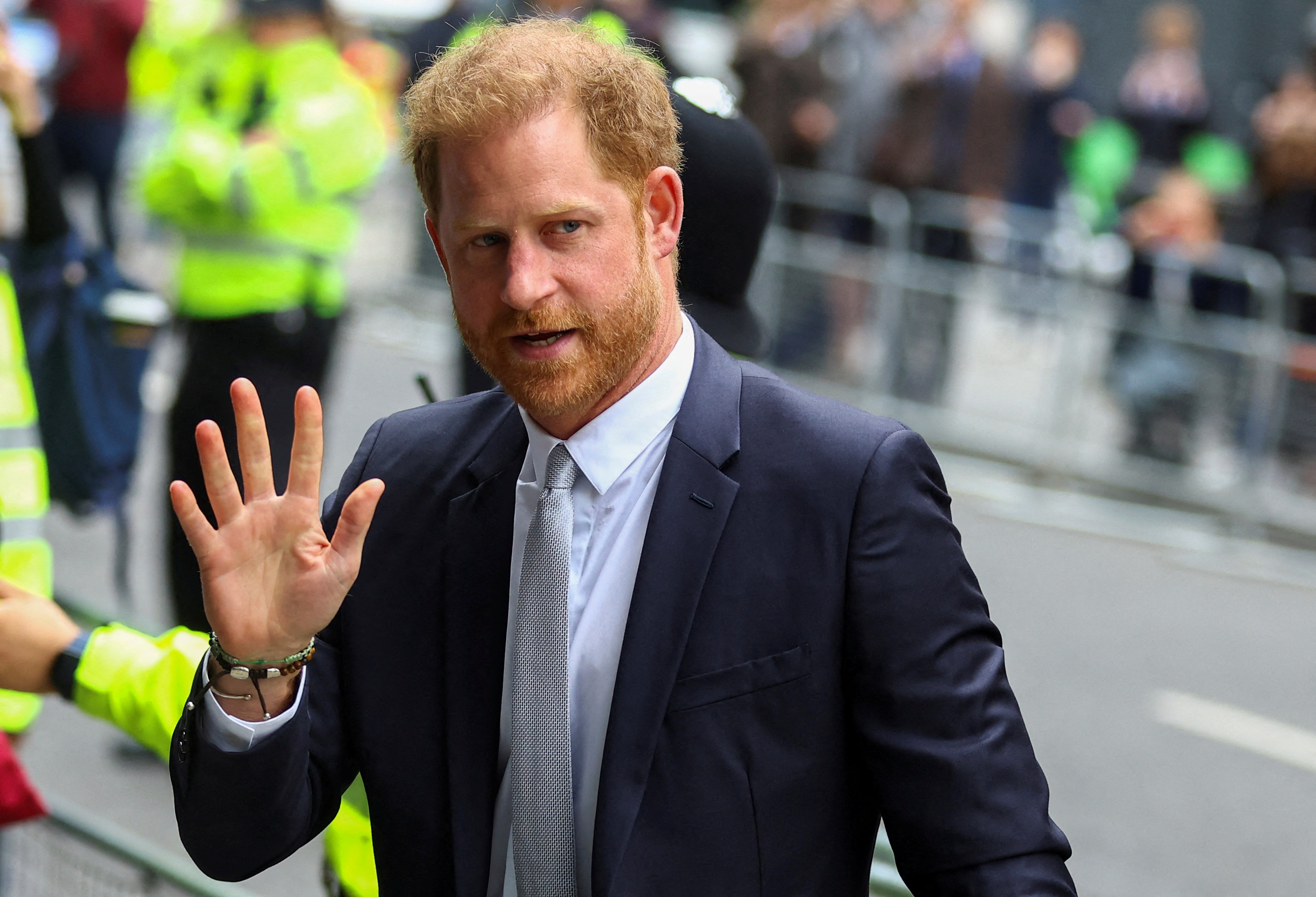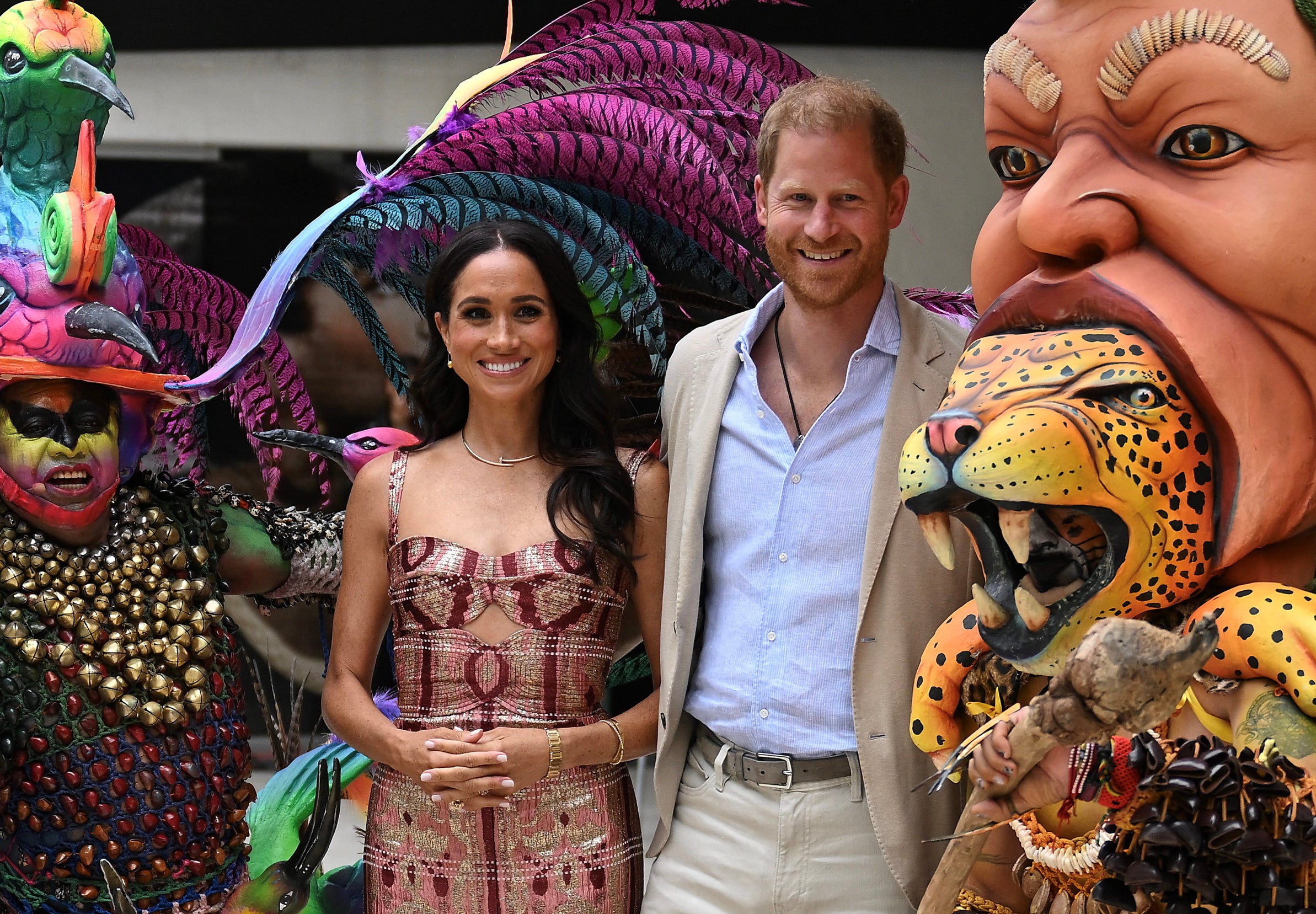Prince Harry ‘turned down stay at Buckingham Palace’ on last visit to London
Harry visited London to celebrate the tenth anniversary of the Invictus Games
The Duke of Sussex turned down a stay at Buckingham Palace in favour of a hotel on his last trip to London.
Prince Harry was invited to use apartments at the palace when he visited the UK to celebrate the tenth anniversary of the Invictus Games, The Times reported.
Instead, the duke opted to stay in a more humble hotel for the visit, in which he did not see his father or brother due to scheduling difficulties.
The King was staying at Clarence House during the visit as offered his son accommodation in the most prestigious location available.
Harry also stayed in a London hotel during his fleeting visit to see his father following his cancer diagnosis earlier this year.

The prince flew from his home in California for a 30 minute meeting with Charles at Clarence House in February before flying back the next day.
It was thought he would return to the UK imminently for his uncle’s funeral, but is now said to be missing the private funeral of Lord Fellowes – husband of Diana’s sister Lady Jane Fellowes – in Norfolk later this month due to his security fears.
Harry lost a High Court challenge against the Home Office in February over a decision to change the level of his personal security when he visits the UK, but he has been given the green light to appeal.
During the case, the court was told Harry believes his children cannot “feel at home” in the UK if it is “not possible to keep them safe” there and that he faces a greater risk than his late mother, with “additional layers of racism and extremism”.

Harry and Meghan stepped down from the working monarchy in 2020 and no longer travel at the request of the UK Government on official overseas royal visits, when travel costs would have usually been met by the taxpayer-funded Sovereign Grant.
Although a visit to the UK looks unlikely, the couple began their four-day tour of Colombia on Thursday in the capital of the South American nation.
Harry and Meghan were met in Bogota by Colombia’s vice-president Francia Marquez and her husband Rafael Yerney Pinillo.
The Sussexes are being given a full security detail throughout their visit alongside Ms Marquez, who invited the couple to travel to Colombia for what has been dubbed a DIY royal tour.

The Sussexes’ team has not confirmed how the trip is being funded, whether privately, through Harry and Meghan’s Archewell Foundation, by the Colombian government or other means.
The quasi-royal tour, which has many similarities to the programme of an official royal overseas visit, is the Sussexes’ second this year, after their three-day visit to Nigeria at the invitation of the West African nation’s chief of defence staff.
Ensuring the couple’s security will be a high priority during their stay. The Foreign Office warns against all but essential travel to certain parts of Colombia, with kidnapping rates remaining high.
It also describes the country as “seriously afflicted by conflict” with a resurgence in violence in parts of Colombia despite the peace agreement with the Revolutionary Armed Forces of Colombia (FARC) movement to end the civil war.
Join our commenting forum
Join thought-provoking conversations, follow other Independent readers and see their replies
Comments
Bookmark popover
Removed from bookmarks